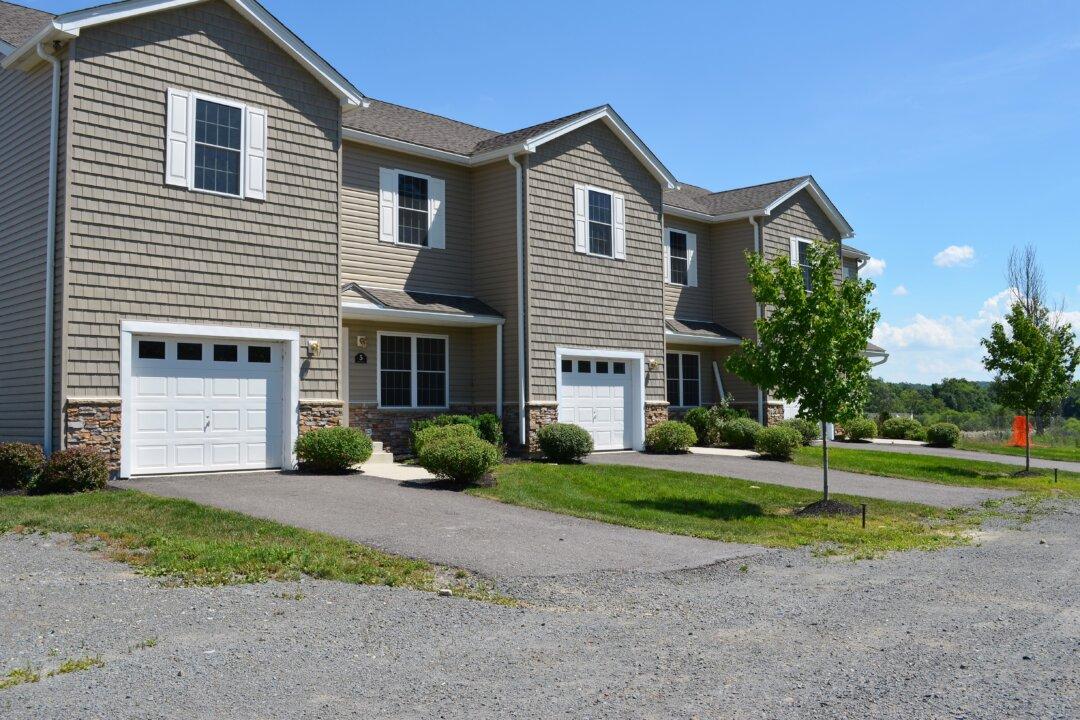MAMAKATING—The Town of Mamakating held a special session on July 13 to consider the Chestnut Ridge development in the Village of Bloomingburg.
After an extended executive session, the board voted unanimously to approve a 20-page resolution to rescind approvals and building permits for the Chestnut Ridge project.
Two days before on July 11, the Bloomingburg Village Board voted to nullify Intermunicipal Agreements (IMAs) that gave the town authority for planning, zoning, and building activities.
Village attorney Philip Butler sent a letter to Mamakating Supervisor Bill Herrmann on July 13 informing the town of the village action.
The Village Board of Trustees adopted a resolution that would terminate the IMAs entered into in 2014 regarding planning and zoning.
Butler directed the town to “cease and refrain” from further action “affecting real property within the Village.”
The Resolution
At the special session of the planning board, Town Attorney Ben Gailey summarized the resolution for the approximately 200 people who attended.
The resolution cited “new evidence” disclosed by a federal court in April 2016. The new information showed adverse impacts on schools, the water supply, and traffic.
The resolution stated the board relied on the Draft Environmental Impact Statement (DEIS) and Final Environmental Impact Statement (FEIS) prepared and submitted by the applicant/developer, Sullivan Farms II, Inc., which the resolution contends misrepresented the numbers of occupants and school age children.
The resolution contends the developers acted “‘in complete secrecy’ since at least early 2006 [sic], and as early as 2002, with the intent to develop the Chestnut Ridge project for exclusive occupancy by families that, on average, have eight children each,” a possible reference to family size in the Hasidic community.
Community Impact
Chestnut Ridge was only the beginning of a huge change for tiny Bloomingburg. The resolution stated, “With the initial occupancy of these homes, the owners of Chestnut Ridge will effectively control the local government, its zoning, and ordinances.”
The newly disclosed information said more development would occur in the next 10–15 years. The plan was to build “a ‘giant and transformative’ development [reference given] by annexing lands into the Village and constructing 5,000–7,000 dwelling units, community services buildings, offices, retail shopping, and large-scale commercial development on the lands adjoining the Chestnut Ridge project.”
Michael Fragin, spokesman for developer Shalom Lamm, said “there has been no effort at any time on the part of the town to come to terms with the fact that there is a growing Hasidic community in their town.”
The Town’s resolution said there was evidence that this was planned for Hasidic residents from the beginning. “Importantly, the developers have discreetly acquired hundreds of additional contiguous acres in adjacent land parcels for future development and community infrastructure including schools, schuls (synagogue), mikvos (ritual purification bathing room), retail shopping, offices, Hatzoloh garage (Jewish EMS), Refuah center (health center), and large-scale commercial development combined, the scale of what has been accumulated without public knowledge is breathtaking.”





